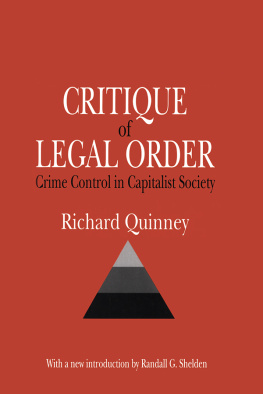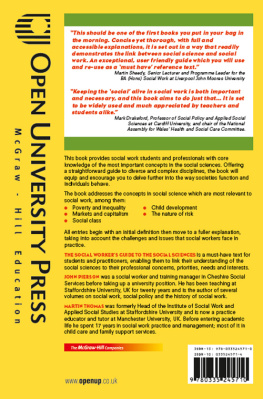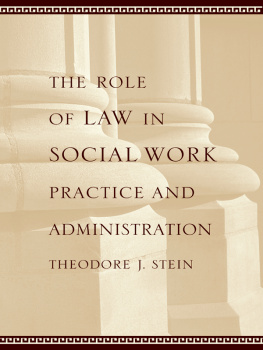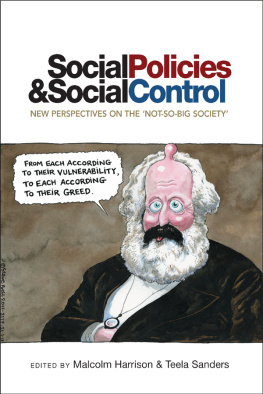Larry Barnett - Legal Construct, Social Concept: A Macrosociological Perspective on Law (Social Institutions and Social Change Series)
Here you can read online Larry Barnett - Legal Construct, Social Concept: A Macrosociological Perspective on Law (Social Institutions and Social Change Series) full text of the book (entire story) in english for free. Download pdf and epub, get meaning, cover and reviews about this ebook. year: 2010, publisher: Routledge, genre: Politics. Description of the work, (preface) as well as reviews are available. Best literature library LitArk.com created for fans of good reading and offers a wide selection of genres:
Romance novel
Science fiction
Adventure
Detective
Science
History
Home and family
Prose
Art
Politics
Computer
Non-fiction
Religion
Business
Children
Humor
Choose a favorite category and find really read worthwhile books. Enjoy immersion in the world of imagination, feel the emotions of the characters or learn something new for yourself, make an fascinating discovery.

- Book:Legal Construct, Social Concept: A Macrosociological Perspective on Law (Social Institutions and Social Change Series)
- Author:
- Publisher:Routledge
- Genre:
- Year:2010
- Rating:4 / 5
- Favourites:Add to favourites
- Your mark:
Legal Construct, Social Concept: A Macrosociological Perspective on Law (Social Institutions and Social Change Series): summary, description and annotation
We offer to read an annotation, description, summary or preface (depends on what the author of the book "Legal Construct, Social Concept: A Macrosociological Perspective on Law (Social Institutions and Social Change Series)" wrote himself). If you haven't found the necessary information about the book — write in the comments, we will try to find it.
Based on sophisticated demographic analysis, Legal Construct, Social Concept argues that legal doctrine on social issues is shaped by the needs and values of society rather than by individuals and interest groups and that it evolves in response to social change but has little impact on that change. The book also explains why a substantial body of social science research has found that although law may be effective for some types of economic problems, its impact on social problems is generally small and of brief duration. At least in the United States, legal doctrine seems to operate primarily to provide symbols that enhance commitment to the social system and increase the cohesiveness of the system.
Barnetts approach to legal thought derives from the practices and assumptions of the social sciences, particularly sociology, and not from those of critical legal studies. His main concern is with social issues issues that substantively differ from economic issues. In addressing legal thought on social problems with the conceptual framework and quantitative techniques of macrosociology, he considers a topic that is infrequently investigated and employs an approach that is infrequently used.
To illustrate this thesis, Barnett presents data on social patterns relevant to three current issues: sex discrimination, age discrimination, and the availability of contraception and abortion. His analyses of these data are compared to constitutional philosophy, judicial rulings, and federal statutes. Barnett then turns from the evolution of legal doctrine in the past to its possible change in the future and considers whether active forms of euthanasia are likely to be legalized. He concludes with an exploration of additional issues for future research and theory.
Larry Barnett: author's other books
Who wrote Legal Construct, Social Concept: A Macrosociological Perspective on Law (Social Institutions and Social Change Series)? Find out the surname, the name of the author of the book and a list of all author's works by series.








